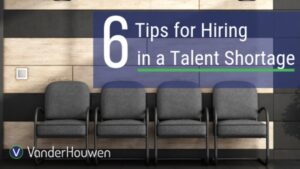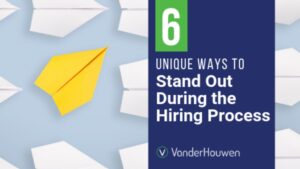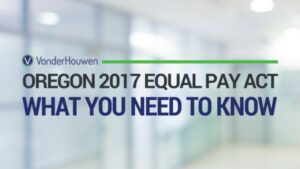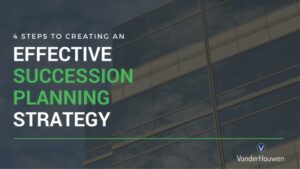Beginner’s Guide to Contracting
Are you looking to learn new skills or work with cutting-edge technology? Maybe contracting is for you! Contracts are typically limited-duration (anywhere from a few weeks or months to a year or longer) with time spent working on a specific project. Because contract roles are often looking for people with certain skillsets, you’ll get experience within different environments, team dynamics, and companies while building your resume and career trajectory.
As with any job, there are a few things to consider before you dive into contracting. If you think contracting might be for you, here is our guide to the process.
As with any job, there are a few things to consider before you dive into contracting. If you think contracting might be for you, here is our guide to the process.
Why Contract?
If you’re considering contracting for the first time, you may ask yourself: Why would I consider trading the stability of a full-time position for a contract? Great question!- Temporary: Because contracts have predefined durations, contractors can maintain income during a lengthy job search. They’re also helpful after an unexpected layoff or a temporary downsizing. For instance, you could move to a new city and try a few contract jobs until you find the company culture that best fits you. Temporary work offers more flexibility when you need it most.
- Test-drive a new environment or industry: Maybe you’ve always dreamed of working for a particular company, but they aren’t hiring any full-time employees right now. However, they do have contract opportunities available for a few months. If it makes sense, do it! It will give you an inside look at what it’s really like to work there, and help you gain a sense of the overall dynamic of the company’s workplace culture. The same goes for testing the waters in a brand-new industry. Tired of working in healthcare? Look for positions in other areas of interest, and maybe one of them will be the right fit.
- Enhance your skills: With each contract, you have the opportunity to learn new skills ranging from cutting-edge software to fresh management techniques to new processes. Is there a position that you've always wanted to try that your skill set is suited for? Go for it! There’s nothing better than hands-on learning – plus the additional experience will benefit you the next time you’re searching for a job.
- Compensation: You may have access to higher compensation as a contractor. Employers hiring for a project requiring a specialized set of skills understand that paying for top talent means making a top offer. Where the employer saves on certain employment costs by offering a temporary contract, they may provide flexibility when it comes to pay.
- Networking: Contracting allows you to expand your network, between employees at the companies you contract with, other contractors, and even recruiters that you meet. Networking within companies you contract for could help you gain more employment with them, but the expanded network can be a huge asset when looking for new contracts as well. You could learn of new opportunities, industry trends that excite you or make a connection that could provide a solid reference in the future.
Find a Recruiter You Trust
Connecting with a recruiter who gets you and is genuinely interested in matching you with a job you’ll enjoy is crucial for your job search. A good recruiter is interested in developing a solid relationship with you and learning your career interests well. When looking for a recruiter, there are a few things to keep in mind:- Has anyone in your network worked with them? If so, would they recommend them?
- Are they listening to your needs and suggesting jobs that match those needs?
- What companies do they work with? Some companies only hire through recruiters, so if your heart is set on a company, see who they use and start there.
- Are you comfortable asking them questions, and are they giving you informed answers to the best of their ability?
The Process
- Submittal: Your recruiter will send you jobs that match your skill set, professional goals, and desired compensation. They’ll talk you through what they know about the job (responsibilities, managers, company culture, required qualifications, etc.) and give you time to decide if you’d like to be submitted for the job. If you choose to go forward with submission for a job, your recruiter may ask for additional information. Depending on client requirements, this could include your full legal name, the last four digits of your social security number, or more extensive details about vacations or schedules. Don’t worry, this information is protected and only used when required by clients or background checks.
- Note: Respond quickly to your recruiter. If you take a week to answer your recruiter you will likely miss the job submission deadline. Instead, respond to your recruiter as soon as possible, ideally within 12-24 hours, and make sure you have all the information they need.
- Interview: When you’re asked to interview, your recruiter will schedule it for you with the client. They’ll also call you the week of for interview prep and to remind you of when and where the interviews will be held. Since recruiters are connected with hiring managers, they can give you a good idea of what strengths, skills and projects you should highlight during the interview. They can also give you interview tips if your skills are a little rusty.
- Feedback: After the interview, things can slow down. This is normal! How quickly you are hired depends solely on how quickly the hiring managers move. Sometimes, they interview and decide on a candidate to hire within a week, others take a month just to get through all the scheduled interviews and internal processes. Set an agreed-upon check-in call with your recruiter. With so much going on in the world, things could be forgotten, so touching base is always a good idea.
- Job Offer: After you’ve been offered the job and accepted the offer, you’ll become an employee of your recruiting agency while you perform contract work for their client. This means your benefits are offered by your agency, not the client for whom you’re performing the work. Because the agency is your employer of record, you should contact them if you’ll miss work due to illness or need other time off. Also, be sure to communicate these things with your worksite manager so everyone is aware.
- Note: It is possible to have your contract role converted into a full-time position at the client, but that isn't always the case. It's best to go into your contract with the mindset of completing your commitment to the project, and if the client decides to hire you full-time, that's great! If not, that is alright, and you likely gained some valuable experience and skills while there.
- When the end of your contract approaches, you and your recruiter should connect to decide on the next steps. If you liked contracting, your recruiter may have different opportunities for you to consider. If you decide to look for a full-time position, they may be able to help with that too if their clients are using them to recruit for full-time positions. Your recruiter can review those opportunities and represent you as a candidate if the job description is a good match.
Ready to see if contracting is for you? Contact VanderHouwen today and let us find the job for you!































































































































